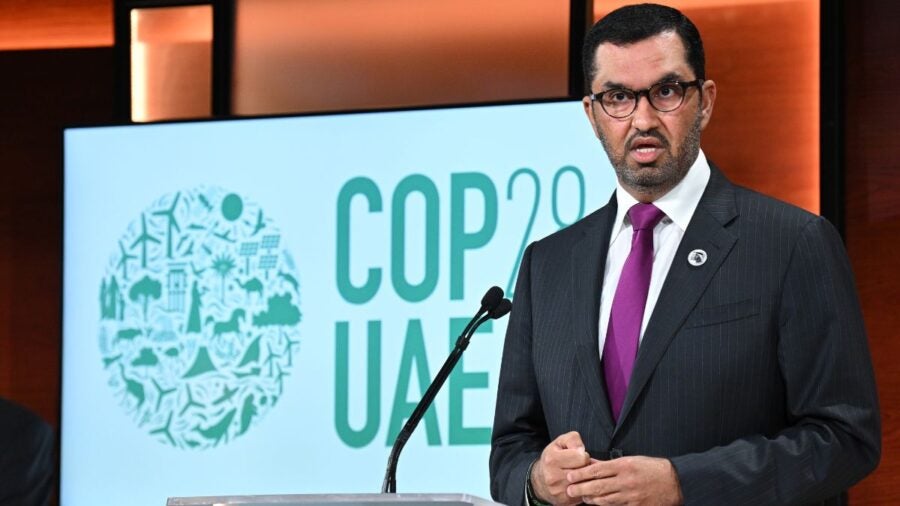
In the eyes of some, COP28 was doomed to fail as soon as the host was announced. This year’s climate talks are set to take place in the United Arab Emirates – a country that is among the world’s biggest exporters of oil and which has plans to extract 38 billion barrels of fossil fuels between now and 2085, according to Energy Monitor.
After a disappointing COP27 in Egypt, many of the sustainability experts I spoke to had lost hope for COP28 some 12 months before it was even set to start. “These events are now hijacked by fanfare, greenwashing and vested interests,” said one. “I am thus not very optimistic for COP28, a COP hosted by a petrostate in a region that thinks that fossil fuels are not the problem.”
The appointment of Sultan Ahmed Al Jaber as president-designate of COP28 has not helped matters. Alongside his governmental role as minister of industry and advanced technology, he also holds the position of group CEO of the Abu Dhabi National Oil Company (Adnoc), the world’s 11th largest oil and gas producer.
Unsurprisingly, he has been a controversial choice to chair these climate talks, with climate campaigners describing it as a “mockery”. Despite Al Jaber’s acknowledgement of the need for a “major course correction and a massive effort to reignite progress”, his actions show otherwise. Adnoc has plans to expand its oil and gas production capacity to 5 million barrels per day. Numerous attempts to greenwash his image and the name of his company have also set a bad precedent.
Is this COP already a flop?
But there is still hope that this COP can be a success and it would be wrong to write it off before it starts in earnest. These conferences are really about climate diplomacy, finding a suitable route towards a cleaner future that suits as many parties as possible.
There are no green stars awarded for attendance. The real hard work of transitioning away from fossil fuels, removing carbon from the atmosphere and restoring nature happens in the months between these annual events.
However, there must be a clear show of ambition in these talks in order to set the correct tone. This year is on track to be the hottest on record – we need to hit the accelerator on climate action if we are to avoid catastrophe.
The involvement of petrostates and oil companies is not a negative thing in and of itself. The world needs the involvement of these groups more than any other in order to transition to a green future. But we can’t let their interests dictate the pace of change. Businesses must follow the science as closely as possible and they will be looking towards COP28 for guidance.
If the conclusion of this conference determines that there is still scope for companies like Adnoc to continue plundering fossil fuels, while underinvesting in green alternatives, then COP28 will be the failure that many predicted and will rightly be remembered as one of the biggest greenwashes in history.

In the eyes of some, COP28 was doomed to fail as soon as the host was announced. This year’s climate talks are set to take place in the United Arab Emirates – a country that is among the world’s biggest exporters of oil and which has plans to extract 38 billion barrels of fossil fuels between now and 2085, according to Energy Monitor.
After a disappointing COP27 in Egypt, many of the sustainability experts I spoke to had lost hope for COP28 some 12 months before it was even set to start. “These events are now hijacked by fanfare, greenwashing and vested interests,” said one. “I am thus not very optimistic for COP28, a COP hosted by a petrostate in a region that thinks that fossil fuels are not the problem.”
The appointment of Sultan Ahmed Al Jaber as president-designate of COP28 has not helped matters. Alongside his governmental role as minister of industry and advanced technology, he also holds the position of group CEO of the Abu Dhabi National Oil Company (Adnoc), the world’s 11th largest oil and gas producer.





